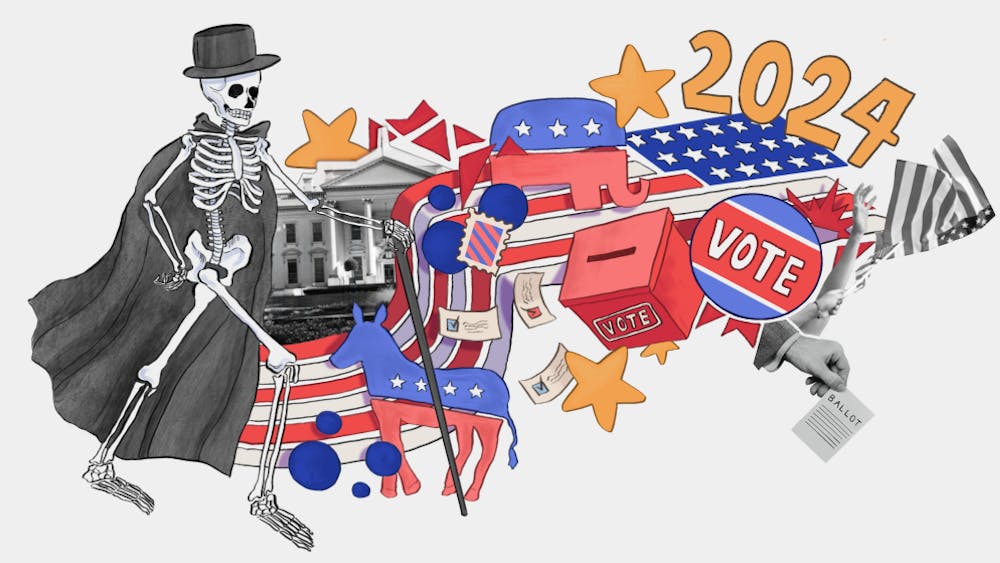Watching this election cycle unfold has been like watching a boxing match. No, seriously. Did you pay close attention to the CNN debate advertisements? They were like promotions for a title fight. The debates themselves, moreover, were like actual boxing matches; a well-worded insult yielded just as many “Ooooh”s as a knockout blow. As an added bonus, both fighters exchanged some more nasty comments before and after the match via Twitter, just to highlight the omnipresent gleaming professionalism in modern American political discourse.
Wait, just kidding. Gleaming professionalism? In American politics? Showcased on a network like CNN? Ha!
The more I watch Hillary Clinton utter rehearsed soundbites at debates with a hint of manufactured passion in her voice and the more I cringe as I watch Donald Trump gleefully eviscerate the GOP’s repute, the more I fear for what this election season says about American culture.
Think about it. For the past year and a half, we’ve tuned in to election coverage eager to hear about the flippant, foolish things that our candidates do. Why? Because watching election coverage is like watching reality television: it’s plastic, it’s sensationalized and it often leaves a bad aftertaste.
At same time, though, it has an ensnaring effect; a record-breaking 84 million viewers tuned in to the first presidential debate on CNN. I remember countless occasions when a news headline would snatch my attention, only for it to glue me to the couch with my mouth agape, texting my mom, “Trump said WHAT?” or, “Hillary deleted WHAT?”
It’s a marvel that the two candidates with whom we have ended up are — according to a Gallup poll — the most unfavorable in history. On one hand, we’ve got Clinton, the champion for corporate interest with almost as much trustworthiness as a snake, and on the other hand, we have the buffoon, Trump. Whether it’s her winsome deceitfulness or his flagrant sexism, both find ways to make us cringe, scream or share political BuzzFeed videos on Facebook.
Has this become the norm? Within the next century, will it have become commonplace for our nation’s representatives to coolly insult identity groups, lie to the American people and detach themselves from any notion of prudence? Will it be normal for political candidates to fight on Twitter like schoolchildren do at recess? We shouldn’t make excuses for our leaders when they act stupidly or speak obscenely; we should hold them to the same standards to which we hold everyone else, if not higher.
It boggles my mind that Trump can still have such zealous supporters despite his caustic actions and words; why are his more ardent supporters happily willing to look past the flaws that make him unfit to hold presidential office? The same goes for Clinton supporters: if Benghazi wasn’t enough for y’all to disown her, then why isn’t her frightening lack of transparency scaring you off? It seems that, when it comes to our public figures, we’re okay with their heinous misdeeds or outrageous failure to do their jobs, as long as they can cough up an apology (before going back to whichever reprehensible thing they were just about to do).
This travesty of an election season illustrates many negative things about American culture: here in the U.S., a racist, sexist white guy can still vie for the presidency, and a lying, irresponsible Secretary of State can continue to have so many constituencies in fervent support of her. It’s as though our celebrity-leaders’ actions don’t matter. What matters is the capitalized letter to the right of their names, held tightly between a pair of parentheses. This two-party tribalism suggests that our political culture is steeped in an us-versus-them mentality and a languid acceptance of our parties’ dichotomous relation, as Republicans and Democrats grow more and more divided as the election drags on.
This election season underscores the beginning of America’s departure from the Judeo-Christian values that are woven into its historical fabric. In a country where ad hominem attacks earn more retweets than a policy plan, where sensationalism in the media runs rampant and where candidates too depraved to hold office taint the American political sphere, virtuous political discourse — that is, debate and conversation free from personal attacks, sensationalism and the like — cannot take place. I hope that our communities can steer away from this moral netherworld, and that our future leaders learn from the mistakes of Trump and Clinton; in the midst of America’s growing state of social unrest and unhappiness, however, it appears that — from sexism and racism to duplicity and intransparency — our presidential candidates represent everything morally wrong with this country.
Justin January is a College freshman from Atlanta, Georgia.
Read More





